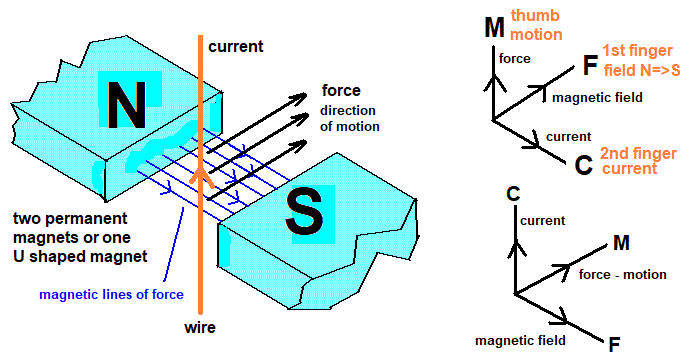CIE iGCSE Co-ordinated Sciences-P4.5.4 Force on a current-carrying conductor- Study Notes- New Syllabus
CIE iGCSE Co-ordinated Sciences-P4.5.4 Force on a current-carrying conductor – Study Notes
CIE iGCSE Co-ordinated Sciences-P4.5.4 Force on a current-carrying conductor – Study Notes -CIE iGCSE Co-ordinated Sciences – per latest Syllabus.
Key Concepts:
Supplement
- Know that a force acts on a current-carrying conductor in a magnetic field, including the effect of reversing:
(a) the current
(b) the direction of the field - Recall and use the relative directions of force, magnetic field and current
CIE iGCSE Co-Ordinated Sciences-Concise Summary Notes- All Topics
The Motor Effect
A force acts on a current-carrying conductor when it is placed in a magnetic field, provided the conductor is not parallel to the field lines.
Explanation:
- The magnetic field around the conductor interacts with the external magnetic field.
- This interaction produces a resultant force on the conductor.
- The direction of the force is given by Fleming’s Left-Hand Rule.
Effect of Reversing Current or Field
- (a) Reversing the Current: The force on the conductor reverses direction.
- (b) Reversing the Magnetic Field: The force also reverses direction.
- If both are reversed together, the force remains in the same direction.
Factors Affecting the Force:

- Strength of magnetic field (\(B\)).
- Size of the current (\(I\)).
- Length of conductor in the field (\(L\)).
- Force is maximum when the conductor is at right angles to the field.
The force magnitude is given by:
\( \mathrm{F = B I L} \)
where
- (\mathrm{F}) = force in newtons,
- (\mathrm{B}) = magnetic field strength in tesla,
- (\mathrm{I}) = current in amperes,
- (\mathrm{L}) = length of conductor in meters).
Summary
| Change | Effect on Force Direction |
|---|---|
| Reverse Current | Force reverses direction |
| Reverse Magnetic Field | Force reverses direction |
| Reverse Both | Force remains in same direction |
Example :
A wire carrying current into the page is placed between the poles of a horizontal magnetic field directed left to right. In which direction does the force act? What happens if the current is reversed?
▶️ Answer/Explanation
Step 1: Use Fleming’s Left-Hand Rule: – First finger = field (left to right), – Second finger = current (into the page), – Thumb = force direction (downwards).
Step 2: If the current is reversed (out of the page), the force direction reverses (upwards).
Final Answer: Force is downwards; reversing the current makes the force act upwards.
Relative Directions of Force, Magnetic Field and Current
When a current-carrying conductor is placed in a magnetic field, the directions of the force, magnetic field, and current are always at right angles to each other. This relationship is shown by Fleming’s Left-Hand Rule.
Fleming’s Left-Hand Rule:![]()
- Hold out your left hand with the thumb, first finger, and second finger at right angles.
- First finger (Field): Points in the direction of the magnetic field (from North → South).
- Second finger (Current): Points in the direction of the current (conventional current, + to –).
- Thumb (Force): Points in the direction of the force (motion of conductor).
Key Points:
- If the current or magnetic field is reversed, the direction of the force also reverses.
- If both current and field are reversed together, the force remains in the same direction.
- The maximum force occurs when the conductor is at right angles to the field lines; no force acts if it is parallel to the field.
Example :
A conductor carries current vertically upwards while placed in a horizontal magnetic field directed from left to right. In which direction is the force?
▶️ Answer/Explanation
Step 1: Apply Fleming’s Left-Hand Rule: – First finger = field (left → right), – Second finger = current (upwards), – Thumb = force (out of the page).
Final Answer: The conductor experiences a force out of the page.
